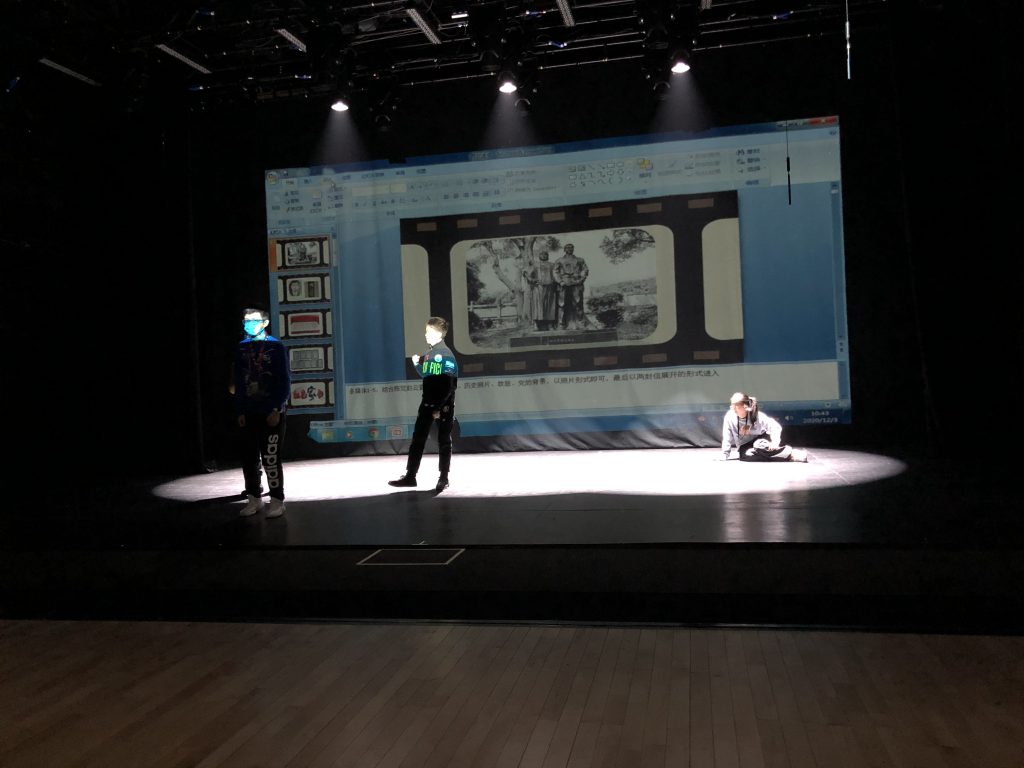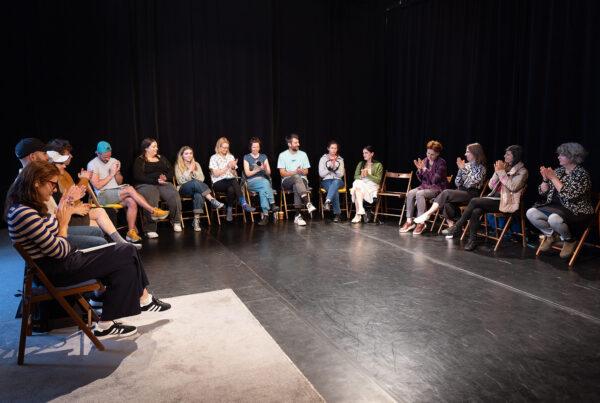By Scott Yanshun Cai
Towards the end of 2020, I participated in the 2nd Shanghai Teenagers Theatre Festival – as a member of a 5-person team representing our School in the show night of the Festival.
The Shanghai Teenagers Theatre Festival is the talent pipeline for the College Drama Festival of Shanghai, a flagship performing arts festival of the metropolis since 2004. Not surprisingly, therefore, the core organizers are the same for these two Festivals. It’s very very official (in other words, the Festival differs from a simple theatre carnival put on by any independent production company).
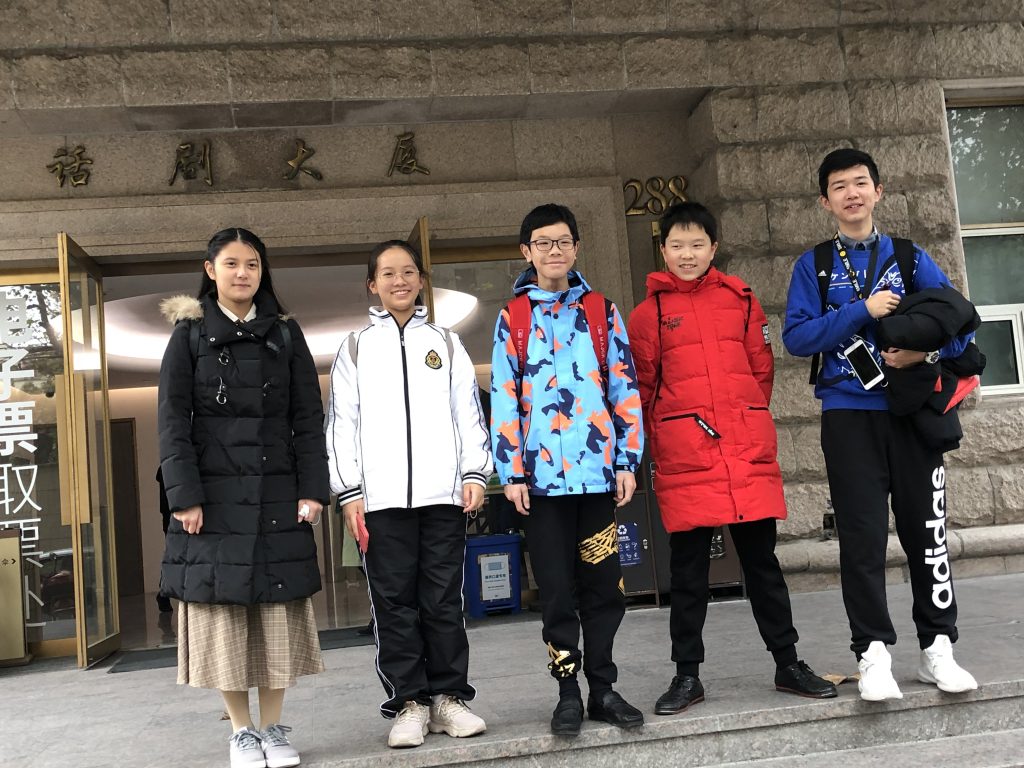
Dream work at play
In my observation, of all the 45 participating schools there are some unique features. One heavily-represented segment is the international schools (including bilingual schools), which is quite understandable as artistry education has historically been an integral part of school curriculum by western convention. But for the rest, one could hardly find any ‘chicken blood schools’ engagement. (‘Chicken blood school’, in Chinese, refers to those whose students work extremely hard to be high-graders in Gaokao, the national college entrance exam.)
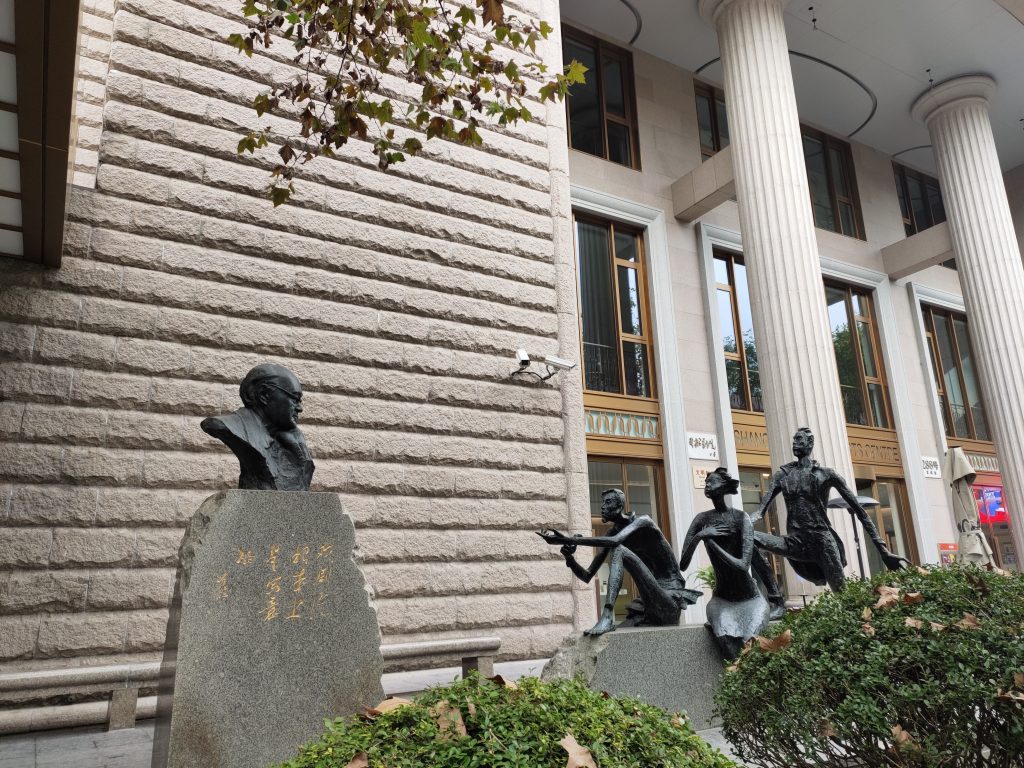
There’s also a big disparity in art resources. We have the luxury of getting huge school support and having professional art directors coach us through the production. One peer school has an arts director and lighting designer who is a Russian artist… But not every K-12 school in China is in the same situation. For a lot more ‘under-resourced’ schools with no arts directors or arts programming, I think some practices by our arts director may serve as a helpful tool kit —
First, invest heavily in boys (at least in our country – the teen’s theatre field — they are the minority) – motivate, train and retain them! Second, 1-or-2 grade may pose as a ‘generation’ gap among younger players; hence it’s incredibly vital to transform the focus on skills training into organizational learning: every single time we rehearse, when we do the stage set, music and lighting, our director will invite our troupe members who are 1-or-2 grade junior to sit in and witness; the digital archiving of the play helps to pass on the critical know-how to the future ‘generations’ of club leadership and players alike, both from an artistic and management point of view.
Teamwork makes dream work. We rehearse for about eight weeks to make this play happen. We grow into a tight, cohesive team to uplift one another as people and actors. We share a couple of theme songs in our app chat-group – these beautiful songs serve as a reminder that we are part of something meaningful and that we have the teammates to lean on despite the difficulties lying ahead…
Again, back to the ‘chicken blood school’ issue, it’s all about hope and how young people see their futures, isn’t it? According to a joint research by the American National Endowment for the Arts and Theatre for Young Audiences/USA, young people discover and develop hope through the performing arts.
“We think there is an explanation,” the report quotes expert Lindsey Maliekel (director of education/public engagement of New Victory Theater) as saying: “As you raise kids’ ability to think about lives other than their own, and simultaneously raise their ability to practice imaginative skills, you raise their ability to wonder ‘what if?’ and adjust their own hopefulness for their future.”
In light of that, it’s so reassuring to do some ‘dream’ work – to fantasize about our futures not merely defined by GaoKao success; our futures of way more imagination!
Social distance can be a barrier – and an advantage
In the 2020 Shanghai Teenagers Theatre Festival, we put our performance on the stage during the global pandemic. As a result, not as many audiences were allowed in the theatre as usual. What’s more, the audiences were seated with social distancing requirements.
We were, however, not let down by the lack of audience seats. I would rather see it as a ‘small-venue show’, which has its own strengths.
The delivery of a small-venue show is different from facing a super large audience. For the latter, using costumes with large heads might be helpful, as such costumes enable audiences to see characters clearly on a large stage and from a distance. In our show, however, we focused more on lights, emotions and sound volume, trying to create a more intimate setting and a closer relationship with the audience. I can feel that the distantly-seated audiences are impressed by the impact of our voice, actions and overall lighting set and can form shared bonds.
With this accidental experience of a de facto ‘small-venue show’, I grew more interested in the concept of ‘tiny theatre’ and ‘nomadic artists’ as well.
Getting a new window opening
Indeed, the engagement in the teenager theatre festival brings me a whole new horizon – seeing what is possible by synergizing performing arts with other disciplinary endeavors.
Drama therapy, for instance, is an interdisciplinary domain between drama and psychology that I am now tremendously interested in. It is an active, experiential form of expressive therapy that can help teens better identify their own (as well as others’) feelings, explore new problem-solving skills and personal growth.
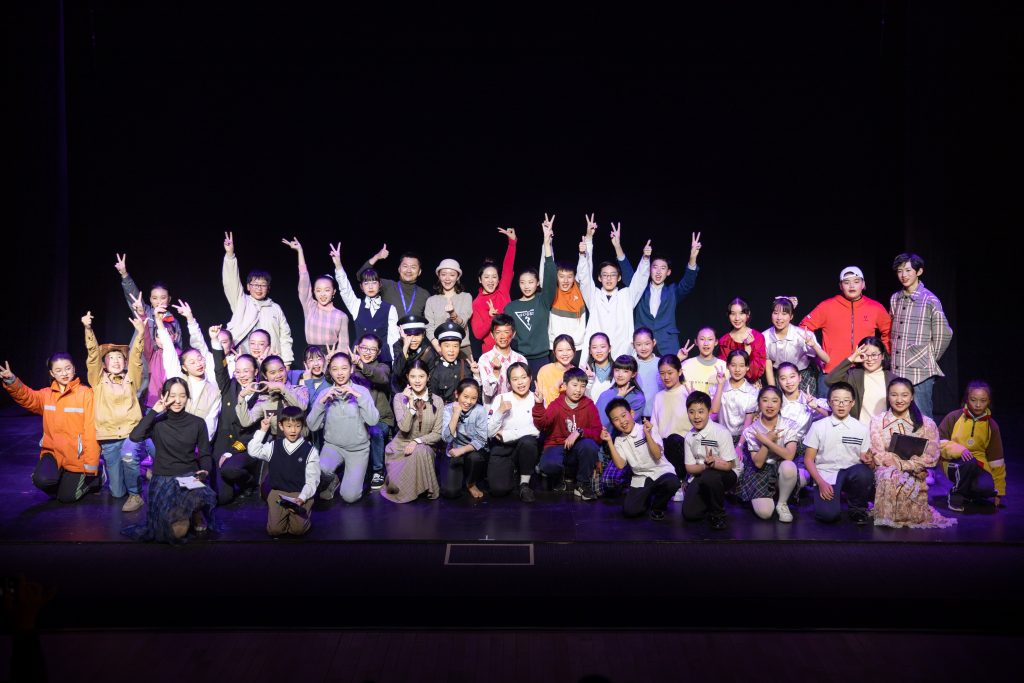
I have spared no time in getting in touch with Ms. Gao, the faculty leader of our school’s psychology club, letting her know about my 4-year experience in stage performance and expressing my intention to join her work of creative therapy in the next semester.
What excites me, then, is the prospect of adopting my drama and theater techniques – including improvisation, role playing, puppetry, effective ways of relating, and acting out stories – to explore the wonders in the field of drama therapy.
I am a big believer of ‘21st century skills’ and in shaping our future as new-generations of global citizens who embrace interconnectedness, diversity and have the capability to take action in meaningful ways; theatre can make us more self-aware, compassionate and empathetic.
Last but not least, I have been scheduled to spend three weeks at a summer school near London in July-August of 2021, where drama training (amongst science and mathematics) is one component of the course offerings. It is my genuine hope to get a taste of the classical theatre training – perhaps interacting with Shakespearean trained actors/tutors! – and to sharpen my stage performance caliber in an entirely-English setting.
About the author: I am currently a student in a bilingual middle school in Shanghai. We thank teachers Willie Ma, Zhou Xumei and Liu Zelin for making such a wonderful experience possible for us; and I congratulate my teammates Zheng Yan, Ruan Yichen, Liu Yiting and Gu Yijia for the great job as well.
